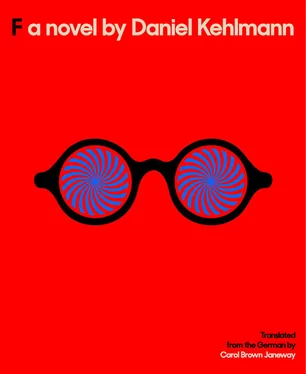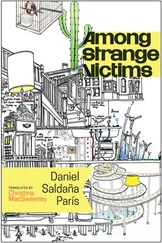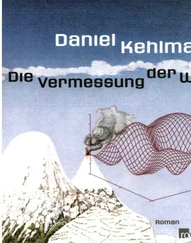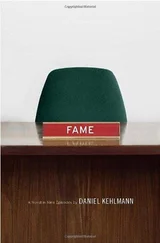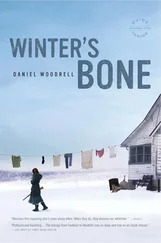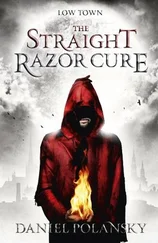The bit about God and the lukewarm, says Maria Gudschmid, isn’t in the Bhagavad Gita, it’s from the Bible.
The danger, says Kelling, that Triple A bonds could lose a significant portion of their value, can be discounted in practical terms. Triple A’s are and will remain classical value investments and thus risk free.
A problem arises, says Pöhlke, that it’s a known fact that investment banks invested in the very positions they were actively offering for sale to smaller firms. They thus set the value themselves of what they were selling; in other words, they unilaterally decided how much their customers owed them.
At some point, Felsner says, there will be a class-action suit against this system. But at the moment the only thing to do is wait. There has been an announcement that Krishna’s next avatar will appear before this epoch of ours is over.
Which doesn’t mean that it’s certain that the avatar will have to be human, says Maria Gudschmid.
If for example anyone is holding significant insurance paper, says Lehmann, it would be impossible to calculate the extent of exposure in the event of a collapse of the large derivative conglomerates. There is, he says, no tool to work out a reasonable rate of risk.
“Kluessen wants to withdraw his money,” I say.
At a stroke the room falls silent.
But hopefully it’s not yet a sure thing, says Felsner. And there are certainly things we can still do.
Not a good moment to lose our most important account, in Maria’s view.
In an emergency there are tricks, says Lehmann. If for example the value of a set of assets cannot be reliably established because of a legally suspect asymmetry in the market, the trustee has the right to freeze those assets on a temporary basis. Even against the wishes of the owner.
Pure theory, says Schörter. No court would accept such an argument.
To get back to the problem with the investment banks, says Pöhlke. His proposal: short a few of them, without great investment.
Only to him that dares, says Lehmann, will Krishna give.
Quite a few dare, is Pöhlke’s infuriated retort, and Krishna does not give. The god has freedom of action, because he is freedom itself.
Which is why bad people sometimes get the lot, says Kelling, while good people get nothing. The risk potential in the lower reaches of the mortgage pool is not good, and—
“Thank you!” I stand up. Until now I’ve kept a straight face, I’ve stayed sitting with my back straight and haven’t given anything away. Now I’ve had enough.
“Just one more question,” calls Schröter.
The door closes behind me.
On the way to the elevator I wonder about how to establish that I really did hear what I think I heard. But if I ask someone, he could lie, and even a recording can be manipulated.
“Now it’s happened,” says the man next to me in the elevator. “Now it’s all coming to an end.”
He’s wearing a hat and his teeth are hideous. I’ve seen him already today, but I can’t remember where. He doesn’t look right at me but talks to my reflection in the mirror on the back wall of the elevator, so that it is not he but his reflection that stares at me fixedly. Apart from us there are two other men standing there with briefcases, but they are looking straight ahead and paying no attention to us.
“What did you say?” I ask.
“Nothing,” he says.
I turn away.
“Sometimes every path is the wrong one,” he says.
I stare at him.
“The truth will set you free,” he says. “Nice if it were so. But sometimes there is absolutely nothing that can set you free anymore. Neither lies nor the truth.” He straightens his hat with an affected gesture. “At bottom there is no longer any difference between the two, Ivan.”
“Excuse me?”
He frowns.
“What did you just say? About lies and truth? Did you call me Ivan?”
Now the two men with the briefcases are watching us, concerned. Yes, that’s how it goes, that’s how they shatter your nerves. And then all of a sudden, you grab someone and yell and start hitting them and then they can put you away. But I’m not going to make it that easy for them.
“Apologies,” I say. “I must have misheard.”
“You think?” asks the man with the hat.
The elevator stops, one of the briefcase men gets out and a woman in a black jacket gets in. They’ve practiced really well, everything looks natural. You could watch for hours and never have any suspicion.
“You’re not going to hold out very much longer,” he says.
I don’t react.
“Keep running. Look good in your suit. Keep running for as long as you can. You look the worse for wear.”
I don’t react.
“You have to know, today is not a day like any other. Sometimes it’s easier. Death brings us closer.”
The elevator stops, the doors open, I get out without turning around. I go out to the street, the heat has abated a bit, it will soon be evening. Knut is sitting in the car with the engine running. Did I tell him to wait for me? I get in.
“Question,” he says.
“Not now.”
“Municipal bonds — should you, shouldn’t you, how does it look?”
How cool and quiet it is in the car. A good make of car, clean, tank full, with a chauffeur at the wheel, all give me more peace than the finest of religions.
“To be specific,” says Knut. “My aunt. Dead. Bad thing. I told you about it. The building site. The crane.”
“Yes, I know.” As always, I haven’t a clue.
“But it was also her fault. She shouldn’t have hidden where she did. Nobody made her do that, did they?”
“No.”
“In any case, none of us would have thought she had a hundred thousand euros. We just didn’t know. Particularly not after the thing with the innkeeper and the burglars. And also because she was always so stingy. Nothing ever at Christmas. Nor to the children. So now, what do we do? There’s this old guy next door, his son is with the bank. I don’t like him. He doesn’t like me either. Particularly not after the whole thing with his dog. He stated that the beast was never in our garden, but I have two witnesses. So — municipal bonds. His son’s idea. Mitznik.”
“What?”
“That’s what the old guy is called. And he stutters! Municipal bonds. Mitznik’s his name. So what now, boss, are they okay? Municipal bonds?”
“Yes, pretty much.”
“But do they pay anything?”
For no apparent reason he brakes sharply; luckily my seat belt is fastened. He hits the horn and then drives on. “I want to make some money! If there’s nothing in it, I’m out!”
“The more reliable an investment is, the less it pays. The highest wins you can make are in a casino, because the odds there are so terrible. Investing is gambling with good odds.”
“Can I give it to you, boss?”
“Me?”
“Will you invest it for me, boss?”
“We don’t accept such small investments.”
“But for me? As a favor? For a friend?”
Did he really call me a friend? The maneuver is transparent, but it moves me. “A hundred thousand?”
“Maybe even a bit more.”
Well, it would be enough to pay the rent on the office space for a while. Later that would make him one joint plaintiff among many, that’s no longer the point.
I shake my head.
“Boss!”
“It wouldn’t be right. Believe me.”
“Why?” He coughs, then he emits a series of high, sharp sounds. They could be sounds of rage, or they could be sobs.
“You just have to believe me. It’s better this way.”
He brakes, opens the window, and screams at someone. I can’t understand it all, but the words animal, pig-ignorant , and child abuser emerge, along with something about strangulation. He’s already driving on.
Читать дальше
